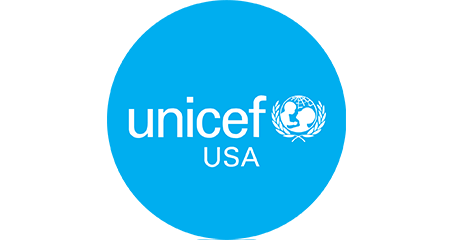NEW YORK (April 7, 2022) – Six weeks into the war in Ukraine, the fragile nutritional status of children in the Middle East and North Africa is expected to worsen.
While Muslims in the region observe the holy month of Ramadan, disruption in imports caused by the conflict is creating food shortages amid high prices of essential commodities, including wheat, edible oils, and fuel. If this continues, it will severely impact children, especially in Egypt, Lebanon, Libya, Sudan, Syria and Yemen; some are hunger hotspots according to recent assessments undertaken prior to the Ukraine crisis, as those countries were already struggling with conflicts, economic crises, or a sharp increase in global food prices in 2021.
“With ongoing conflicts, political instability, the COVID-19 pandemic and the war in Ukraine, the region is witnessing unprecedented hikes in food prices coupled with low purchasing power. The number of malnourished children is likely to drastically increase,” said Adele Khodr, UNICEF Regional Director for the Middle East and North Africa.
The impact of the continuing war in Ukraine is compounding the impacts of two long years of the COVID-19 pandemic on economies, employment and poverty in the MENA region, where more than 90 percent of food is imported.
Many countries have already been struggling with child malnutrition, especially due to ongoing armed conflicts and humanitarian crises.
- Only 36 percent of young children in the region are receiving the diets they need to grow and develop in a healthy way;
- The region is home to high rates of undernutrition and micronutrient deficiencies. On average, nearly one in five children is stunted while the average wasting rate is 7 percent.
In the MENA countries most impacted by the war in Ukraine, undernutrition rates are higher.
- In Yemen, 45 percent of children are stunted and over 86 percent have anemia;
- In Sudan, 13.6 percent of children suffer from wasting, 36.4 percent are stunted and nearly half have anemia;
- In Lebanon, 94 percent of young children are not receiving the diets they need, while over 40 percent of women and children under the age of five have anemia;
- In Syria, only one in four young children gets the diets they need to grow healthy. The price of the average food basket has nearly doubled in 2021 alone.
“UNICEF continues to coordinate the nutrition response in the region. We call to consolidate efforts to urgently deliver and scale up prevention, early detection and treatment of malnutrition to address the needs of millions of children and women, especially in countries most impacted by crises. This is critical to prevent a massive malnutrition crisis for children in the region” added Khodr.
UNICEF works with partners to deliver and scale-up life-saving treatment services for children with severe wasting in conjunction with its early detection in children under five years old. Simultaneously, with partners, UNICEF delivers preventive nutrition services including micronutrient supplements, growth monitoring and counseling and support on breastfeeding and age-appropriate complementary feeding.
“We stand ready to facilitate the revamping of the nutrition response in the region to further strengthen links with agriculture, social protection, education and water and sanitation sectors to reach more children in need,” concluded Khodr.
# # #
About UNICEF
The United Nations Children’s Fund (UNICEF) works in more than 190 countries and territories to pursue a more equitable world for every child. UNICEF has helped save more children’s lives than any other humanitarian organization, by providing health care and immunizations, safe water and sanitation, nutrition, education, emergency relief and more.
UNICEF USA advances the global mission of UNICEF by rallying the American public to support the world’s most vulnerable children. Together, we are working toward a world that upholds the rights of all children and helps every child thrive. For more information, visit www.unicefusa.org.
For more information please contact:
Mackenzie Dougherty, UNICEF USA, 212.922.2551, [email protected]
